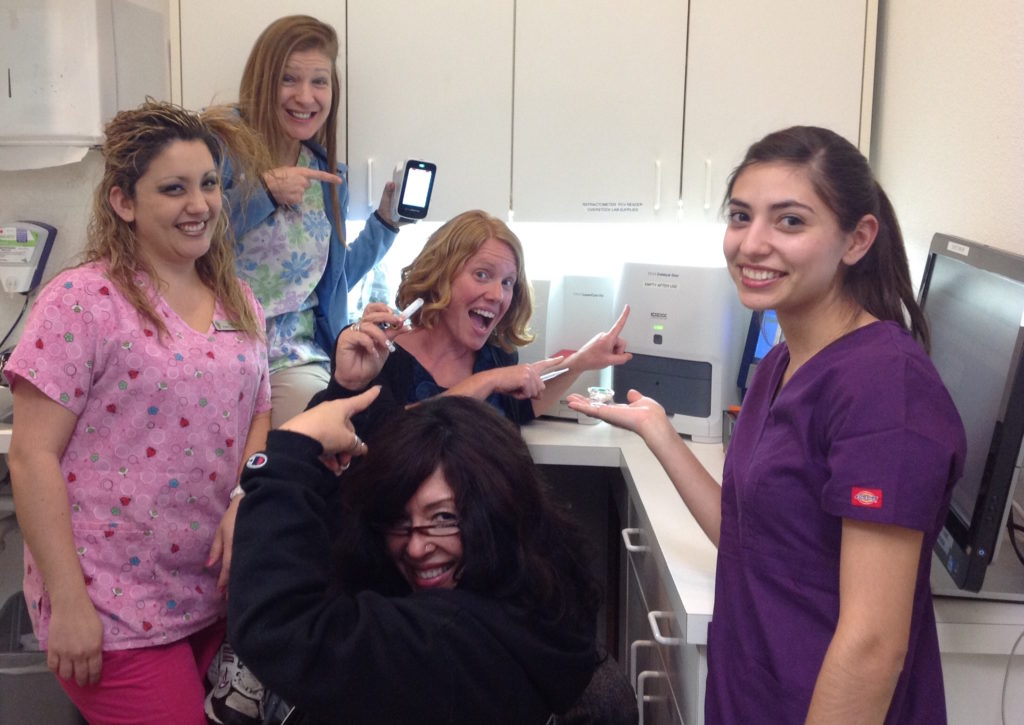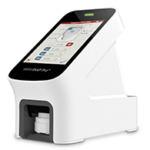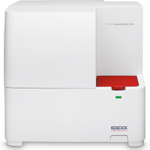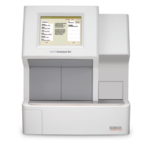Ettinger & Feldman — Textbook of Veterinary Internal Medicine
Canine Hypothyroidism
J. Catherine R. Scott-Moncrieff
What is canine hypothyroidism?
Hypothyroidism is the clinical condition caused by thyroid hormone deficiency. The thyroid hormones (thyroxine, T4 and triiodothyronine, T3) are produced by the thyroid glands, which are located in the neck on either side of the trachea (windpipe). Thyroid hormones influence the metabolism of most of the organs in the body. Deficiency of thyroid hormone results in a decreased metabolic rate, which may cause a wide variety of symptoms. A “decrease in metabolic rate” means that the speed at which cells function or “work” slows down.
Some examples of decreased metabolic rate include the following:
- Decreased heart rate
- Slower mental function
- Decreased body temperature
Decreased secretion of thyroid hormones by the thyroid gland may be due to inflammation (thyroiditis) or progressive failure (atrophy) of the thyroid glands. In rare cases, thyroid tumors may cause hypothyroidism.
Hypothyroidism may be the most common endocrine disease of dogs. Breeds that are predisposed to developing hypothyroidism include the golden retriever and the Doberman pinscher, but any breed of dog may be affected.
What are the symptoms of hypothyroidism?
The most common symptoms of hypothyroidism are the following:
- Weight gain
- Cold intolerance
- Lethargy
- Skin problems (including hair loss, changes in hair color and quality, and predisposition to skin infections)
- Abnormalities of the reproductive and nervous systems (less common)
What tests are needed?
A diagnosis of hypothyroidism is made by measurement of thyroid hormone concentrations (T3, T4, and free T4) in the blood. If thyroid hormone concentrations are low, other tests may be performed to determine whether the decrease is due to a thyroid gland problem or to the effects of other diseases or medications. These additional tests may include measurement of thyroid-stimulating hormone (TSH) and measurement of a variety of antithyroid antibodies (anti-thyroglobulin antibody, anti-T3 and anti-T4 antibodies). In some cases, it is necessary to use trial therapy with thyroid hormone supplementation to confirm the diagnosis of hypothyroidism.
What treatment is needed?
Fortunately, hypothyroidism is a disease that is easily treated. Treatment involves daily or twice-daily oral medication with synthetic thyroxine. The use of dessicated thyroid extract, thyroglobulin, or “natural” thyroid preparations is not recommended because of problems with achieving consistent dosing. Treatment is usually started with two treatments per day, one in the morning and one in the evening. When the symptoms resolve, the treatment can usually be reduced to one dose per day in many dogs. In most cases, treatment is required for the life of the dog.
It may take several weeks to months for the symptoms of hypothyroidism to completely resolve. An increase in activity level is usually observed after 1 to 2 weeks of treatment, and weight loss is evident within 8 weeks. Complete resolution of skin problems may take several months. In some cases the skin may actually appear worse for the first few weeks of treatment as the old hair coat is shed. If a dog was experiencing neurologic problems, improvement usually requires 8 to 12 weeks of therapy.
Excessive supplementation with thyroid hormone usually causes nervousness, weight loss, and increased drinking or increased urination. These problems are rare, but if they occur it is important to call your veterinarian for adjustment of dose.
To establish that the dose of thyroid hormone supplementation is appropriate, it is recommended that blood samples be collected for measurement of thyroid hormone concentrations 1 to 2 months after the start of treatment. The results of these tests are used to adjust the dose of thyroid hormone supplementation. Then it is necessary to measure thyroid hormone concentrations only once a year, unless symptoms of hypothyroidism recur or there is a change in the brand of medication.
What is the prognosis?
Prognosis for return to health following treatment is excellent in most adult hypothyroid dogs. An incorrect diagnosis of hypothyroidism is the most common reason for treatment failure.
Other causes of treatment failure include the following:
- Insufficient dose of thyroxine
- Presence of other concurrent disease
- Poor absorption of medication from the gastrointestinal tract
- Difficulty administering medication
 Click here to download the document in WORD…
Click here to download the document in WORD…








 m home at your convenience.
m home at your convenience.









